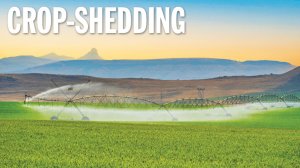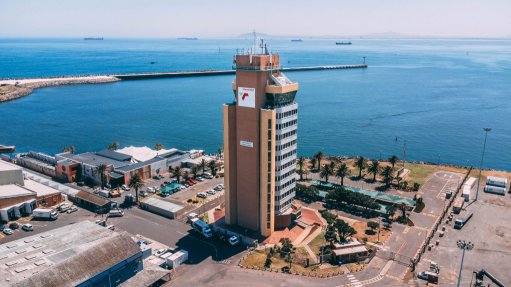Farmers seek new deal as loadshedding threatens industry and food security


Agbiz chief economist Wandile Sihlobo unpacks the impact of loadshedding on the agriculture industry.
TAKING STRAIN The record 5 761 GWh of loadshedding in 2022 hampered farmers’ irrigation efforts and often led to disrupted cold chain management and agroprocessing operations
The impact of loadshedding on the agriculture sector is evident at all levels of operation, including logistics and cold-chain management, which necessitates urgent responses from farmers and government, lest food security and export sales are put at risk.
A report by Nova Economics estimates that agriculture lost about 4.38% of its contribution to gross domestic product in 2018/19 and that the cost of loadshedding for agriculture amounts to R4.01 per kWh in terms of 2020 values.
Loadshedding has escalated in its frequency and severity since 2019 and 2020, with a record 5 761 GWh of outages recorded in 2022, from January to September, which is more than double the figure for 2021.
In the nine months ended September 30, 2022, the agriculture sector reportedly lost R23-billion, owing to crop failure and a decrease in productivity because of loadshedding.
Loadshedding’s impact is ubiquitous, from irrigation, the conveyer belt movement of produce or livestock products, and alarm systems for security to keep livestock contained to cold storage facilities at farms and at ports, as well as railway lines, industry body Agri SA executive director Christo van der Rheede tells Engineering News & Mining Weekly.
Industries such as dairy come to a complete standstill during power outages, owing to the need for electricity for milking, processing and storage purposes.
Interrupted cold storage also impacts on animal vaccines and the efficacy of semen used in cattle breeding, as the semen has to be stored at a certain temperature; if not, it is thrown away at a cost of R92 a dose.
Van der Rheede adds that fruits, particularly bananas and avocados, need uninterrupted cold storage across the transport process, as they could ripen or even rot overnight.
Agricultural organisation Agricultural Business Chamber (Agbiz) chief economist Wandile Sihlobo notes that cold-chain management is critical for products that are exported to markets such as the European Union, which have ever-stringent requirements regarding temperature and timeframes to ensure safe consumption.
Van der Rheede says farmers are losing profits because of not only spoiled goods and lesser productivity but also increased costs as they have to invest in diesel generators and diesel to run them – often for hours on end – during higher stages of loadshedding.
Moreover, farmers are losing out on what would normally be lower electricity tariffs offered by Eskom’s Ruraflex system, which involves lower rates during off-peak times in the day.
The Ruraflex system affords farmers a cheaper timeframe for irrigation; however, farmers have had to operate outside those timeframes at higher tariffs, owing to the severe intermittency of power availability.
Agri SA has suggested that Eskom implement an alternative tariff structure to ensure that farmers are not unfairly burdened by paying higher electricity tariffs when irrigating during peak times. Currently, the winter peak tariff is R4 per unit more, owing to the penalty factor that is incorporated in the tariff.
Farmers also incur more costs when they have to manually restart pumps and water systems following loadshedding, which uses more electricity; however, farmers cannot risk insufficient irrigation, since it will result in lower production and lower quality of production.
Case in Point
Integrated poultry producer Astral Foods on January 25 announced it will incur a cost of R400-million, owing to loadshedding, in the first half of its 2023 financial year and that it is currently producing poultry products at a loss of R2/kg as a result of rolling blackouts.
The company’s earnings per share will fall by at least 90%, or by 142c, it announced in a trading statement.
Astral’s abnormal costs related to a backlog in its broiler slaughter programme have led to higher feed costs for older birds and excessive processing costs. The company has also had to incur additional costs to install diesel generators and additional water storage at its facilities, while putting other capital expenditure projects on hold as the adverse market conditions persist.
Astral CEO Chris Schutte said food security has come under threat for the first time in South Africa, owing to failing State-owned entities. He confirmed that the company may need to resize its business in the short term, resulting in job losses throughout the supply chain, should loadshedding persist at current high levels.
To ascertain the exact impact of loadshedding on food security, Agbiz has conducted a survey across all sectors, and a team of experts has been analysing the results since mid-January.
Agbiz will use the survey as a basis to inform possible interventions that government and private-sector representatives are formulating to ensure a sound approach.
“Disruption in the supply versus demand of agricultural produce will result in price increases and food inflation – something the South African economy can ill afford,” states Van der Rheede.
Agbiz and Agri SA have appealed to government for less-severe loadshedding in areas currently under irrigation. Sihlobo says about 20% of maize, 15% of soybean, 34% of sugar cane and nearly half of wheat are produced under irrigation, with many fruits and vegetables also relying heavily on irrigation.
Agbiz has also asked for more regulatory revision and subsidies related to renewable- energy generation as the electricity crisis is likely to persist for some time.
For its part, Agri SA has asked the National Treasury to award rebates on the petrol and diesel that farmers use to generate electricity, as extra production costs caused by loadshedding threaten food security.
Van der Rheede says farmers’ debt has risen substantially since 2006, from R50-billion to R200-billion, largely owing to persistently rising input costs and investment in alternative power generation.
Agri SA also advocates for private entities’ selling renewable energy into the grid at tariff rates that make the investment worthwhile.
The organisation has also recently proposed that Eskom, the National Energy Regulator of South Africa and government implement higher stages of loadshedding at operations that are not planting crops during the months of April, May and June, on condition that there is sufficient electricity available in the critical irrigation months of January to April.
One positive step, Sihlobo states, has been Agriculture, Land Reform and Rural Development Minister Thoko Didiza’s establishing a loadshedding task team to monitor the impact of rolling blackouts on farming operations, and lobbying on behalf of the industry for less-severe loadshedding in areas that are planting or irrigating heavily.
Meanwhile, Eskom in late January expressed its sympathy for the agriculture sector and admitted that irrigation and refrigeration require uninterrupted electricity. “We are putting in place engagements with farmers and with agricultural societies to see how we can assist farmers, particularly during higher stages of loadshedding,” said COO Jan Oberholzer, adding that the current tariff structure and loadshedding standard may need to be reassessed in the interest of food security and continued export production.
Logistics Efficiency
Despite the South African agriculture, food and beverage sector exporting a record $12.4-billion worth of produce and products in 2021, rail and port inefficiencies have plagued the industry in recent years.
A survey conducted by Statistics South Africa in late 2021 reveals that only about 8% of all agricultural products are transported by rail, despite it being a much cheaper form of transport, compared with road.
Research by the World Bank, cited by Engineering News & Mining Weekly in October last year, shows that it took about 92 hours, on average, in 2020 to export goods from South Africa, compared with 12.7 hours in more efficient countries.
Additionally, exports from South Africa also cost about eight times more than from many other exporting countries, while South Africa’s ports are ranked among the worst-performing of those evaluated worldwide by the World Bank in 2021.
Sihlobo says almost half of South Africa’s agricultural production is exported and, therefore, efficient roads, rail and ports are at the heart of the industry’s success.
To this end, Agbiz will soon sign an interface agreement with Transnet to establish working groups for mapping out critical production areas and to resolve bottlenecks in the agricultural logistics corridors.
The work of the entities is focused on identifying the capacities required on the agricultural railway lines and ports, as well as what infrastructure needs to be refurbished and at what cost.
Agbiz has shared information with Transnet about the peak seasonal activity for various types of fruit, as well as wine, which is typically exported from the Cape Town Container Terminal, so that Transnet can better plan requirements for efficient logistics over the longer term.
The organisation has also identified the critical corridors in the country for fruit and grain, and where it is feasible to move road freight to rail.
Moreover, Agbiz and Agri SA have provided information on the state of roads in highly productive agricultural areas to the relevant government departments, since the state of roads often inhibits trucks of certain sizes travelling on them at all.
Agri SA, for example, has proposed that government offer tax incentives for private- sector companies to maintain and rehabilitate roads; however, Van der Rheede admits it is challenging to revise the law in terms of liabilities and determine who is responsible in case of faults.
In turn, Agbiz deems it necessary that municipalities play their part in maintaining roads in rural areas, since agribusinesses often have to invest capital in fixing or maintaining roads, instead of growing their operations.
Both organisations remain confident that the South African agriculture industry can weather the storms of logistical and electrical challenges, as well as rising input costs, if entities such as Eskom, Transnet and the National Treasury play their part in mitigating impacts and minimising future risks.
Article Enquiry
Email Article
Save Article
Feedback
To advertise email advertising@creamermedia.co.za or click here
Press Office
Announcements
What's On
Subscribe to improve your user experience...
Option 1 (equivalent of R125 a month):
Receive a weekly copy of Creamer Media's Engineering News & Mining Weekly magazine
(print copy for those in South Africa and e-magazine for those outside of South Africa)
Receive daily email newsletters
Access to full search results
Access archive of magazine back copies
Access to Projects in Progress
Access to ONE Research Report of your choice in PDF format
Option 2 (equivalent of R375 a month):
All benefits from Option 1
PLUS
Access to Creamer Media's Research Channel Africa for ALL Research Reports, in PDF format, on various industrial and mining sectors
including Electricity; Water; Energy Transition; Hydrogen; Roads, Rail and Ports; Coal; Gold; Platinum; Battery Metals; etc.
Already a subscriber?
Forgotten your password?
Receive weekly copy of Creamer Media's Engineering News & Mining Weekly magazine (print copy for those in South Africa and e-magazine for those outside of South Africa)
➕
Recieve daily email newsletters
➕
Access to full search results
➕
Access archive of magazine back copies
➕
Access to Projects in Progress
➕
Access to ONE Research Report of your choice in PDF format
RESEARCH CHANNEL AFRICA
R4500 (equivalent of R375 a month)
SUBSCRIBEAll benefits from Option 1
➕
Access to Creamer Media's Research Channel Africa for ALL Research Reports on various industrial and mining sectors, in PDF format, including on:
Electricity
➕
Water
➕
Energy Transition
➕
Hydrogen
➕
Roads, Rail and Ports
➕
Coal
➕
Gold
➕
Platinum
➕
Battery Metals
➕
etc.
Receive all benefits from Option 1 or Option 2 delivered to numerous people at your company
➕
Multiple User names and Passwords for simultaneous log-ins
➕
Intranet integration access to all in your organisation



















